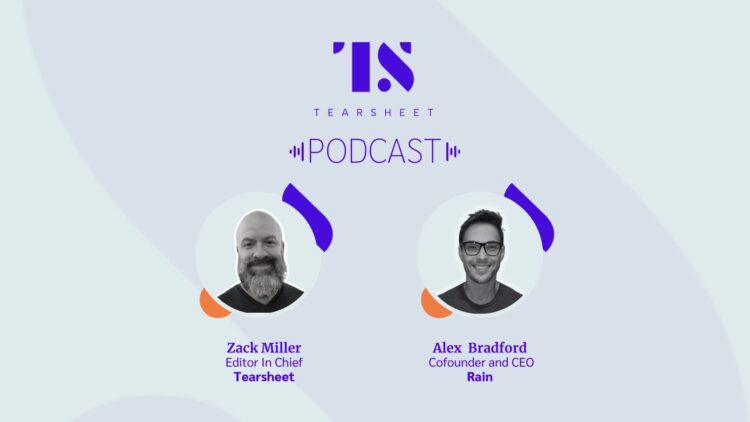‘Americans spend $170 billion a year just waiting for their next paycheck’: Rain’s Alex Bradford
- If earned wage access is to become table stakes, a lot more big employers are going to have to start offering it to their workforces as part of financial wellness programs.
- Rain's cofounder and CEO Alex Bradford joins us on the podcast to talk about the future of EWA and his vision for Rain becoming the killer app for frontline employees.

One of the biggest trends that we’ve seen over the past 2-3 years is the emergence of early wage access, giving primarily gig and hourly workers access to their income on demand, as opposed to the hard-coded dates of a traditional payment cycle.
Rain’s Alex Bradford joins me on the podcast to talk about what’s driving the demand for EWA and how Rain is challenging the status quo of some of hte larger players in the space. Rain works with some of the largest middle market and enterprise companies to provide EWA as a wellness benefit to hundreds of thousands of employees in the U.S.
The company recently raised $116 million and claims it’s growing 10% every month. Alex also shares his view on where earned wage access is headed and who are likely to be the winners in the market. Here’s my conversation with Rain’s Alex Bradford
The big ideas
- Challenges of Traditional Payroll System:
- “Americans spend about $170 billion a year just waiting for their next paycheck. That’s in the form of payday loans, high-interest credit cards, overdraft fees, and other predatory financial products.”
- Financial Stress and Employee Turnover:
- “Turnover is one of the main problems that a lot of industries are still dealing with today. It’s very expensive for employers to be replacing employees, around $4,000 on average.”
- Importance of Wage Access:
- “Rain integrates with employers, their payroll system, their timekeeping system. Employees can access their earned wages with instant funding, addressing the financial stress caused by delayed paychecks.”
- Diverse Use Cases for Wage Access:
- “Some of the main use cases for Rain are buying groceries, diapers, daily essentials, paying for gas, rent, and monthly payments.”
- Wage Access Models: Employer-Integrated vs. Direct-to-Consumer:
- “Cash advance apps typically have a tip type of model. Very few of them are sort of credit products. Companies like Earnin, Brigit, and Dave are in that space.”
- Future of Financial Wellness:
- “Long term, success for the individual user looks like using Rain or the earned wage feature less than less because they’re saving more and more.”
Listen to the full episode
The following excerpts were edited for clarity.
Read the transcript (for Pro subscribers)



